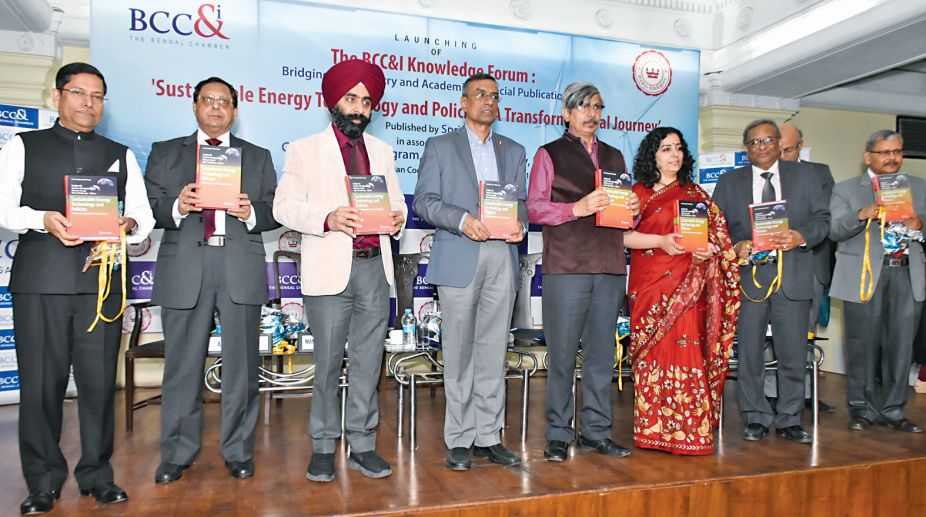JU declines permission for Ram Navami celebrations on campus
A row broke out at Jadavpur University yesterday over the withdrawal of a permission to observe Ram Navami on the campus, allegedly after it was granted.

Bengal Chamber of Commerce
The Bengal Chamber of Commerce and Industry organised a seminar aimed at linking academia with production-oriented activities, besides coming out with a book, Sustainable Energy Technology and Policies – A Transformational Journey to buttress its point of view.
The Chamber believes that its role goes beyond being the vanguard of industry and business. It also has to play an important role in enriching the academia as the contributions from the academia would, in turn, facilitate the industry with intellectual resources.
The Chamber, partnering with Global Change Programme, Jadavpur University, spoke on various issues related to the chasm between the industry and the academia. Deb A Mukherjee, vice-president and chairperson of energy and environment committee, Bengal Chamber, spoke about industry-academia partnership, research-driven innovation and the challenge of taking research to market. “Research is driven by hunger for truth, whereas business is driven purely by profit,” said Mukherjee.
Advertisement
The forum also acknowledged the innovative technology that stems from start-ups and MSME, and said it should be focused upon by not only the government but also by responsible chambers of commerce and trade bodies. Mukherjee said three sets of objectives shape this knowledge forum namely —– creating a proper ecosystem that nurtures innovation, wherein he emphasised on the role of the chamber to create awareness about the importance of intellectual property rights which helps to create and deliver value.
The second objective was knowledge dissemination. A significant part, he said, was the need provided by industries to the research students to pursue it. The third objective is to offer online business-application driven skill development and structure meaningful and value-driven courses.
Professor Ajoy Kumar Ray, director IIEST (Shibpur) delivered his address on academia perspective on renewable energy. “I am really happy that in IIEST Shibpur today, we are facilitating solar cells which are highest in efficiency in India.”
Ray believes that at least for the next 30 years, India has to depend on coal-based energy before shifting to renewable sources of energy.
At IIEST, bio gasification is performed on the campus kitchen waste which has created 15 kilowatt of energy. Since efficiency of energy utilisation is worst in MSME sector, Ray urged institutions such as Jadavpur, Shibpur and Kharagpur to join hands to use greater energy efficiency technologies.
Manpreet Singh Manna, director PMSSS and SWAYAM, Government of India, All India Council for Technical Education, in his special address spoke about three important points on energy-generation, conservation and storage, and said this publication was like a combo pack of Make in India and Digital India. “If you want to have Make in India, it does not mean you have to bring more industries. It means we have to strengthen the industries which are already here. For this we do not have a good energy-storage concept.”
His topic of discussion was inclusive education that included suggestions for an energy conservation hackathon in West Bengal, wherein Manna recommended inviting the engineering students. His advice was to ask the students about improvement in coal and wind energy generation.
The seminar concluded with the launch of the book, and the chapters in the publication featured advanced case studies and thought papers in the realm of transformational energy.
Advertisement